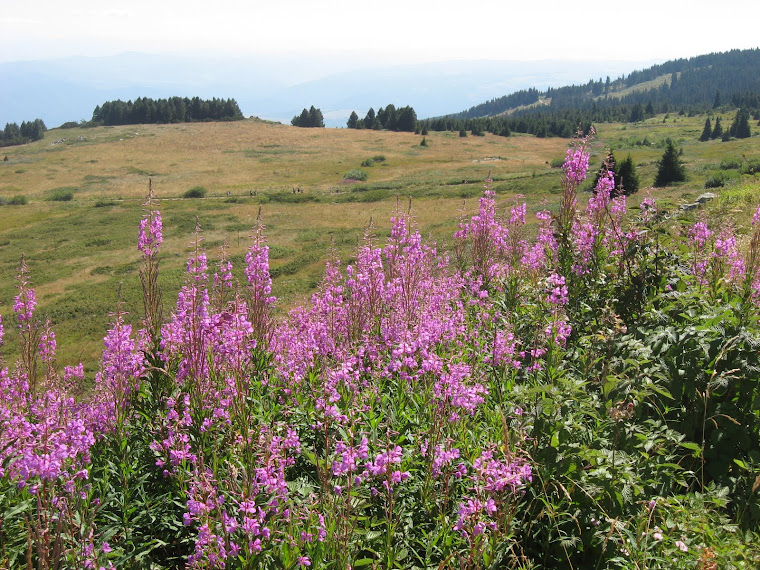It's good news for those of us who struggle with reading Bulgarian when a complete English-language version of Bai Ganyo appears! That happened last year when the University of Wisconsin Press
"I know some guys who've spent ten whole years...doing nothing at all but rotting in the smoke-filled room of the Cafe Panah [can anyone tell me where this was?!] with cards in their hands, and right in front of their noses blooms this lovely, this picturesque, urban garden...We sit in coffeehouses and sigh for Switzerland, but all we need is a little energy, and Switzerland, a Bulgarian Switzerland, is right before us--Mt. Vitosha, Rila, the Rhodopes...is there one local...who has ever climbed Vitosha?" From "Bai Ganyo Returns fromEurope ," spoken by the character "Marcus Aurelius."
I couldn't help recalling my very first post below, when I wrote how muchSofia Vitosha Park
But it's appropriate to celebrate Konstantinov for another reason. In August I joined hundreds of others in climbing up the Cherni Vrah. It was the National Day of Tourism inSofia
If you haven't climbed Cherni Vrah yet, Staslivitse is urging you to leave the smoke-filled room. It's only a short drive away.
"I know some guys who've spent ten whole years...doing nothing at all but rotting in the smoke-filled room of the Cafe Panah [can anyone tell me where this was?!] with cards in their hands, and right in front of their noses blooms this lovely, this picturesque, urban garden...We sit in coffeehouses and sigh for Switzerland, but all we need is a little energy, and Switzerland, a Bulgarian Switzerland, is right before us--Mt. Vitosha, Rila, the Rhodopes...is there one local...who has ever climbed Vitosha?" From "Bai Ganyo Returns from
I couldn't help recalling my very first post below, when I wrote how much
But it's appropriate to celebrate Konstantinov for another reason. In August I joined hundreds of others in climbing up the Cherni Vrah. It was the National Day of Tourism in
If you haven't climbed Cherni Vrah yet, Staslivitse is urging you to leave the smoke-filled room. It's only a short drive away.
